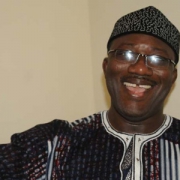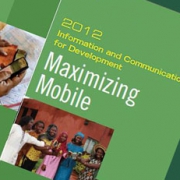Connectivity and Governance: World Bank ICT Days 2011
What role should governments play in leading their citizens down the path to become actively engaged in the knowledge society? It varies greatly on the availability, motivations, and agenda behind the corresponding country’s use of ICTs.
Last week, the World Bank held the highly anticipated four ICT Days, which explored the multifaceted functions of ICTs and how governments can use them to, “Innovate, Connect and Transform” civil society in developing nations.
During the “Connectivity Infrastructure Day”, two speakers from different regions discussed their country’s distinctive agendas and how their government’s involvement of ICTs is enveloped within their economic development reforms.
While Korea Telecom’s (KT) Vice President, Dr. Hansuk Kim, discussed the prospects of nation wide interconnectivity in Rwanda; India’s Ministry of Communication and IT Secretary, Shankar Aggarwal, unveiled his country’s e-government initiatives.
In 2008, KT made a US$40 million deal to collaborate with Rwanda’s government to construct a national backbone project expected to connect the country on a fiber-optic network. The contract obliges KT to provide the government with technology, equipment, relevant application materials and training and to manage the cable installation process. KT will also install a wireless broadband network that will be accessible to 10,000 people in Kigali.
Dr. Kim discussed how Rwanda’s proximity to other African countries, such as Burundi, Tanzania, and the Congo, can serve as a potential customer base. In the future, these countries could use Rwanda’s backbone infrastructure to serve as interconnect points.
Kim also argued that a top-down approach is necessary for large-scale investments in developing economies. He states that the supplier should be on location, and relying solely on private investment can result in fragmented connectivity, so “the government had to initiate the development cycle by giving it a jumpstart. It (the connectivity) has to start somewhere.” Please view the video below to see his argument against the common notion that a government subsidized infrastructure, would inadvertently produce a government owned monopoly:
Once completed, Rwanda’s national backbone will possess the capability to enable online activities requiring high speed, broadband Internet. This includes initiating e-government services, to integrate citizens in the governing processes, similar to the e-government proposal that India has been working on for some time.
Shankar Aggarwal, secretary of the Ministry of Communications and IT in India, spoke at the World Bank event about this new e-governance initiative by the government to make public services, and governance regulations, more inclusive and transparent.
India is a country that has experienced monumental economic growth in the last 5 years—but the distribution of wealth to its 1.2 billion residents remains extremely imbalanced. 70% of the total population lives in rural areas and survive off less than a dollar a day.
India is at a crossroads in their development, as aspirations and hopes increase, those left behind are no longer content to live out the remainder of their lives in poverty. E-governance presents the opportunity to include these individuals in the governance process.
Aggarwal noted that India’s growth will be harnessed without involving the rural poor in governing their country, “if we want to have a sustainable growth, if we want to have happy societies, we have to go in to an inclusive growth…where each and every resident of that country feels that they are part of the governance process”. He began his speech by arguing that the catalyst for the current protests in the Middle East were societies are not being inclusive of citizens in their governing processes.
Please view the following video where he discusses the future of India’s e-governance initiatives for citizen’s inclusion.
The role of these governments to actively expand their connectivity and infrastructure is one that has a common goal: to include their citizens in the knowledge society. Whether it is using public funds for a start up backbone infrastructure, or creating an e-government initiative to make government processes more inclusive, governments from around the world are channeling into the benefits of being interconnected.






































